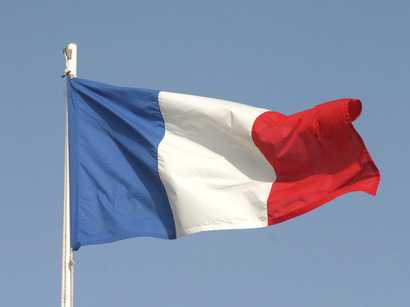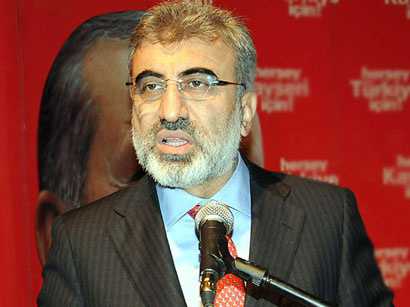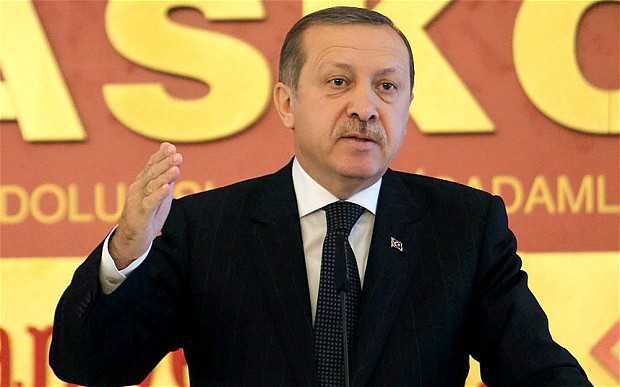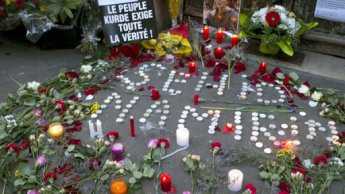By Lucas Eaves | 01/14/2013 | War and Foreign Policy
1×1.trans Assassination of Kurdish Militants Raises Tensions in Turkey
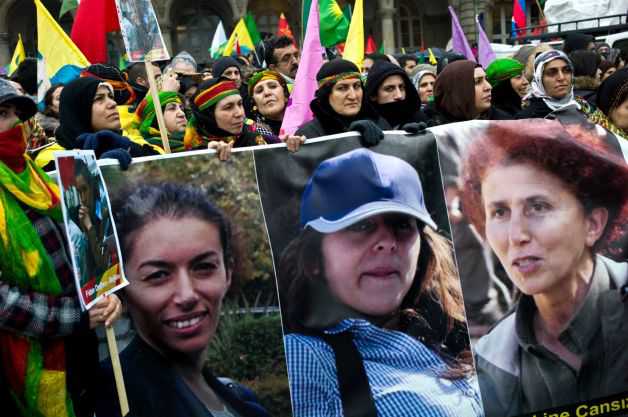
Credit: Thibault Camus
The assassinations of Kurdish militants, including one of the founders of the Kurdistan Workers’ Party, the PKK, last week in Paris is reviving the tensions around a conflict that could affect the whole Middle East region.
Among the three women found dead in the Information Center on Kurdistan in Paris was Sakine Cansiz, a “legend among PKK members” and a very close friend to imprisoned PKK leader, Abdullah Öcalan. These assassinations coincide with the resumption of secret peace talks between the Turkish authorities and Öcalan, and a potential agreement is said to be within reach.
The Kurdish people, who constitute around 20 percent of the Turkish population, have been been fighting for the independence and autonomy of their region for the last 30 years. The conflict with Ankara has resulted in 40,000 dead, with 500 last year alone.
After the failed negotiations between Öcalan and the Turkish government that lasted from 2005 to 2011, the conflict between the PKK and the security forces resumed, leading to the worst casualties since the end of 1990.
These assassinations could put in jeopardy the peace process and a number of leads as to who could have sponsored the killings are emerging:
PKK Internal Feud
It is the lead favored by Ankara for the moment as the Turkish Prime Minister mentioned that the victims must have known their killer since a special key is needed to enter the building where the bodies were found.
More general elements also support this lead. After 13 years in jail, Öcalan’s capacity to negotiate an agreement is being doubted by some leaders in the PKK and some divergence among different branches of the Kurdish movement could explain these killings.
However, the capacity of disgruntled PKK leaders to carry thought such operation in a foreign country is doubtful.
Turkish Nationalistic Groups
Underground, ultra-nationalistic groups, such as “Deep State,” are against the idea of giving more rights to the Kurdish people and have great interests in jeopardizing the peace process.
The extreme right party, the Nationalist Movement Party, which is the only party that opposes the negotiations between the government and Öcalan, maintain a certain influence among the Turkish diaspora around Europe. If their capacity to organize an assassination is unknown, this is the lead favored by the PKK.
Syria and the Syrian Kurdish
Both the Syrian government and the Democratic Union Party (PYD), the Syrian Kurdish party, have interests in seeing the negotiation fail.
With Turkey being Syria’s biggest foe, the Assad regime has let the Kurdish rebellion grow stronger by letting a massive amount of troops enter Syria from Iraqi Kurdistan and operate at the Turkish border.
The Assad regime benefits from this because the Kurdish people have not joined the Syrian rebellion and by giving them control of Syria’s northern border with Turkey, the regime has been able to move the Syrian army to the south to fight the rebels.
A peace agreement between the PKK and Turkey would also harm the PYD as they would lose there strategic importance in the eyes of the Damascus.
Other Potential Lead
Iran would also have interest in seeing this conflict in Turkey continue since the two countries are in direct opposition on the Syrian issue.
Iran would also not approve of the creation of an autonomous Kurdish region in Turkey which could encourage Kurdish people in Iran, who have been repressed for years by the Iranian government, to seek a similar situation.
As the relationship between Iran and Iraq is improving, Iran could have helped its ally that looks unfavorably on the growing relationship between the semi-autonomous Iraqi region of Kurdistan and Ankara, and the oil deals that develop from it.
The results of the investigation by the French police will be made public in a few weeks and the effect of these assassinations on the peace process will depend on which lead prevails.
via Assassination of Kurdish Militants Raises Tensions in Turkey- IVN.
